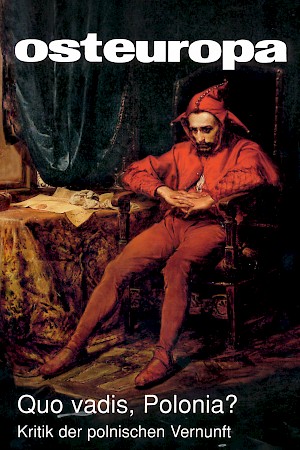Reason’s Cunning
Populism and Modernisation in Poland
Deutsche Fassung
Abstract
Poland is unique. Only here does the government consist solely of populist parties. Anybody who tries to analyse it using ideal types from academic research into political parties will fail, because, for historical reasons, the classical fault lines of the party-building process do not exist in Poland. The populists’ success feeds on demographic pressure, the transformation of values, and a deep-seated uncertainty brought on by the reforms at the end of the 1990s. But a comparison with Europe shows: Populism in Poland is not unique. It has the same paradoxical consequences: Populists attack democracy, but they make it more stable by expanding its ability to integrate; they make use of anti-modern rhetoric, but by polarising, they consolidate their opponents and drive modernisation forward; and because populists are as a rule incapable of solving problems they have named, they lose voters’ support.
(Osteuropa 11-12/2006, pp. 13–32)



